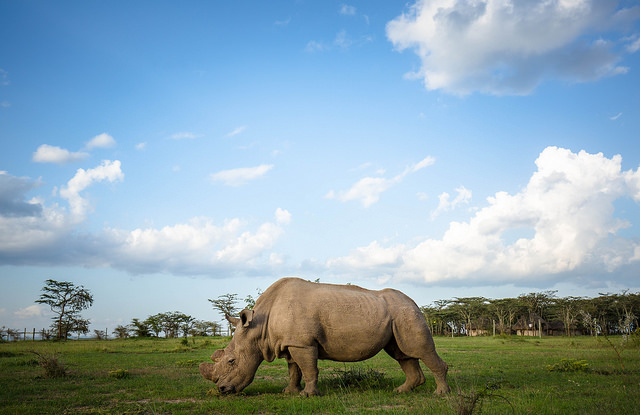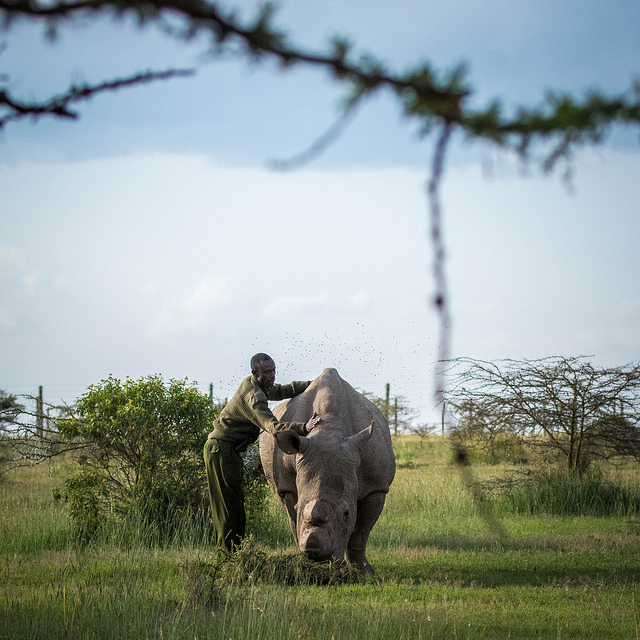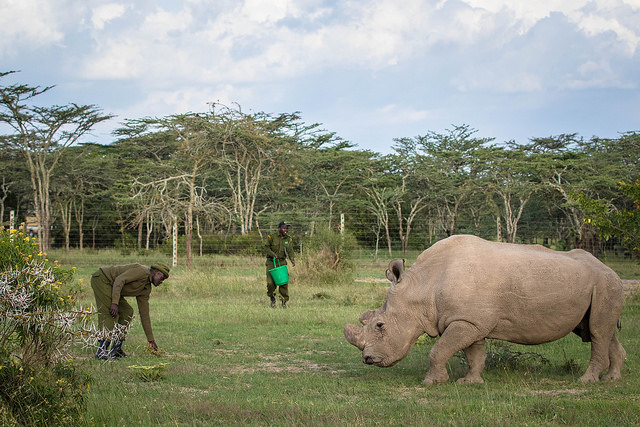A Tragic Loss
It’s no secret that human activities have had a significant impact on the planet and on biodiversity. This year we took a step closer to the extinction of the Northern White Rhino, a subspecies of the White Rhino. Before his death at age of 45, Sudan was the last-known male Northern White Rhino. He spent the last nine years of his life in Kenya where attempts to use science and other research where made to try to bring back the magnificent species. Without Sudan, there are only two female Northern White Rhinos left on Earth.

Confronting the Causes
The astonishing decline in global wildlife populations is happening quickly. There are only 40,000 rhinos alive today–that’s 60 percent fewer than just 40 years ago. This dramatic decline serves as a wakeup call on the importance of acting fast, but also acting smart to protect biodiversity for future generations. One of the first steps towards a solution is recognizing the behavior that drives the cycle forward. Such causes include poaching and the illegal trade of Rhino horns and other animal byproducts such as hides. Additionally, an explosion in the human population has led to encroachment on protected areas and interference on natural grazing lands.

Crafting a Solution
Though it can certainly seem daunting and hopeless at times, we shouldn’t give up hope yet. One of the solutions towards ensuring the survival of our wildlife lies in the hands of the communities that coexist with wildlife. Communities that share resources with wildlife should also share benefits that come from wildlife. Another solution entirely lies in scientific research and learning. We ought to be clear about the absolute consequences of the impact caused by human activities by rallying more funds towards the protection and conservation of unique wildlife species and their habitats. The death of Sudan and eleven other rhinos which also succumbed in a botched translocation process is a cruel symbol of how much disregard humans have for nature.

Looking Towards the Future
We should exploit the unique advantage technology affords us
Written by David Mukabi, a wildlife conservationist working with Wildlife Direct, who lives in Kenya.




